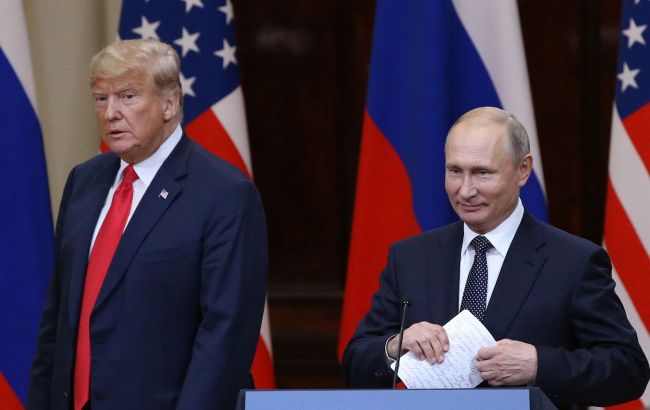Trump vows Putin won't attack NATO during his presidency – WP
 Photo: US President Donald Trump and Russian leader Vladimir Putin (Getty Images)
Photo: US President Donald Trump and Russian leader Vladimir Putin (Getty Images)
During the NATO summit in The Hague, Donald Trump changed his rhetoric for the first time and expressed strong support for the alliance and its defense mission, reports The Washington Post.
According to three European officials, Trump began the main NATO session with positive words about defense spending and promised that Russia would never attack NATO as long as he remains president.
Other leaders, for their part, praised Trump's efforts to increase European defense spending.
Trump's change in rhetoric
On the way to the Hague summit, Donald Trump expressed skepticism about Article 5 of the NATO treaty, questioning the notion of collective defense. The very next day, he pledged full support for the alliance, noting that the United States would stand with its allies to the end, whatever that meant.
The US president emphasized that America is “here to help” its European partners. This is a turnaround in his rhetoric, in contrast with the previous threats to leave allies unprotected.
Doubling of military spending
The leaders of NATO's 32 nations agreed to more than double their military targets, in line with Trump's longstanding demands. Now, the alliance's spending is to rise from 2% to 5% of GDP by 2035, taking into account “creative accounting.”
The declaration mentions a flexible interpretation: up to 1.5% can be counted as spending on infrastructure and assistance to Ukraine. Many allies fear budgetary burdens, but under pressure from the United States, they accepted the new targets with a timeline wide enough.
Flattery and diplomatic gestures
Heads of state specifically praised Trump behind closed doors, praising his boldness in striking Iran and promising to “Make NATO Great Again.” Secretary General Mark Rutte even called him “Daddy.”
The president spent the night in the royal palace and exchanged personal messages with the leaders. Experts note that such flattery has become a tool for obtaining favorable decisions from the American president.
The subtext of the strike on Iran
Amid the ceasefire between Israel and Iran, Trump celebrated the success of his foreign policy. He mentioned the published photo from the Israeli Atomic Commission of the complete destruction of the Fordow facilities.
However, the president acknowledged that intelligence could not accurately assess the extent of the destruction, saying, “all they can do is take a guess.” This statement has sparked debate about the credibility of the reports as the world assesses the impact of the strikes.
Reactions from allies and prospects
French President Emmanuel Macron said that the large expenditures were dictated by the Russian threat, not by a desire to please the United States. Spain and some other countries have tried to soften the new targets, fearing budget overload.
Experts warn that the agreements are still declarative, while actual implementation has been postponed until 2035. Allies are using advanced accounting techniques to buy time and adapt plans to their own capabilities.
EU military intelligence says Putin is preparing to attack NATO countries within five years.
According to a scenario published by Bloomberg, the attack will start in the Baltic States.

